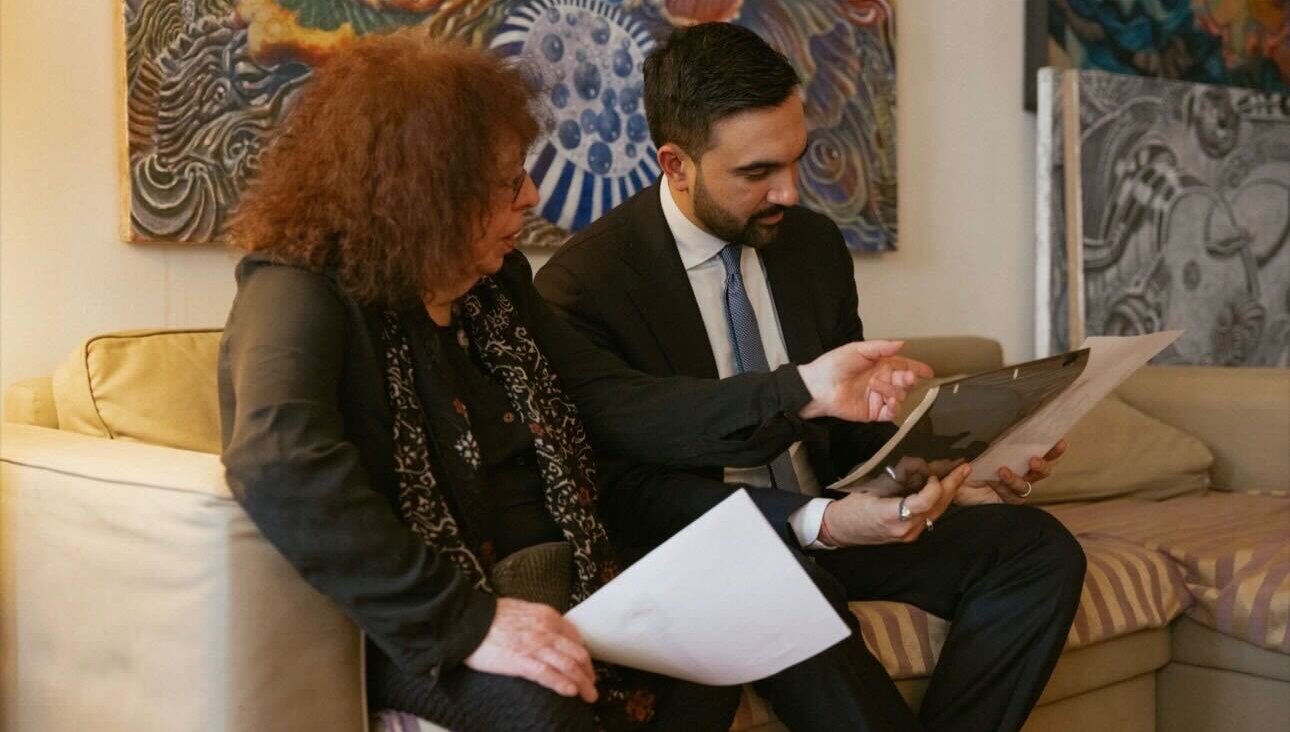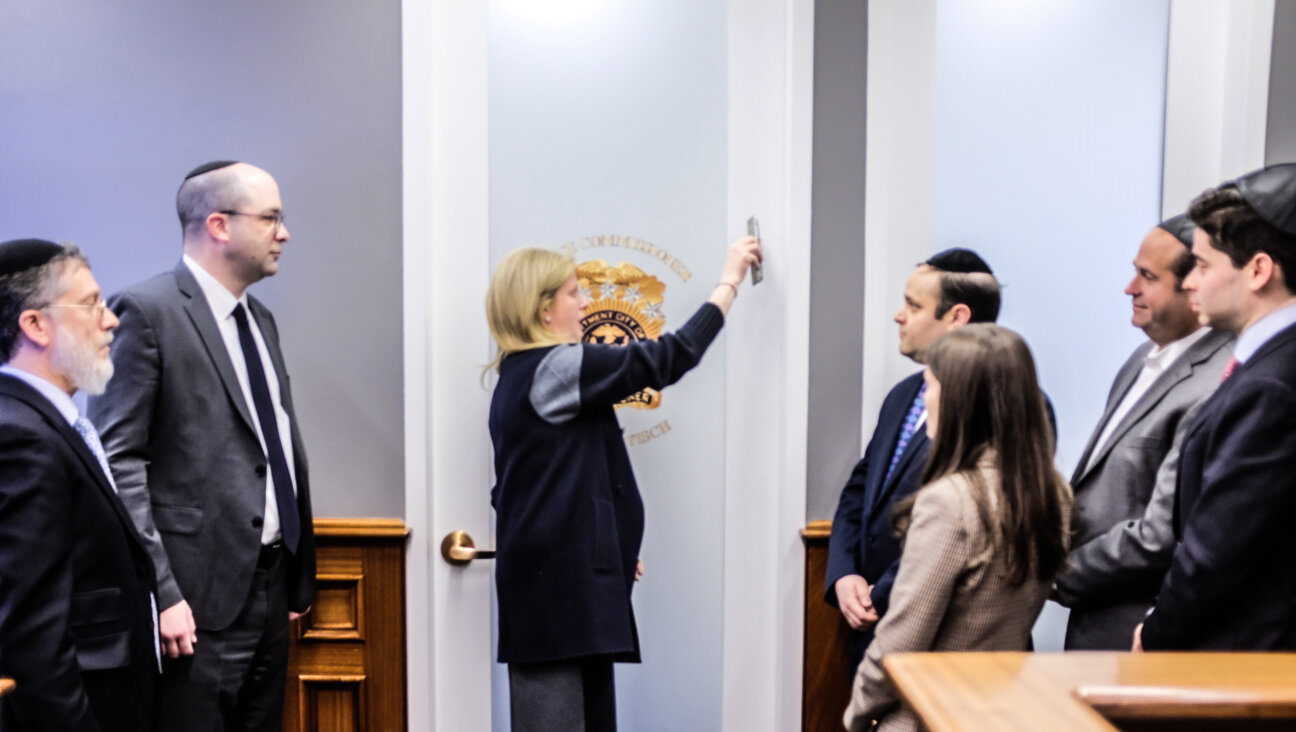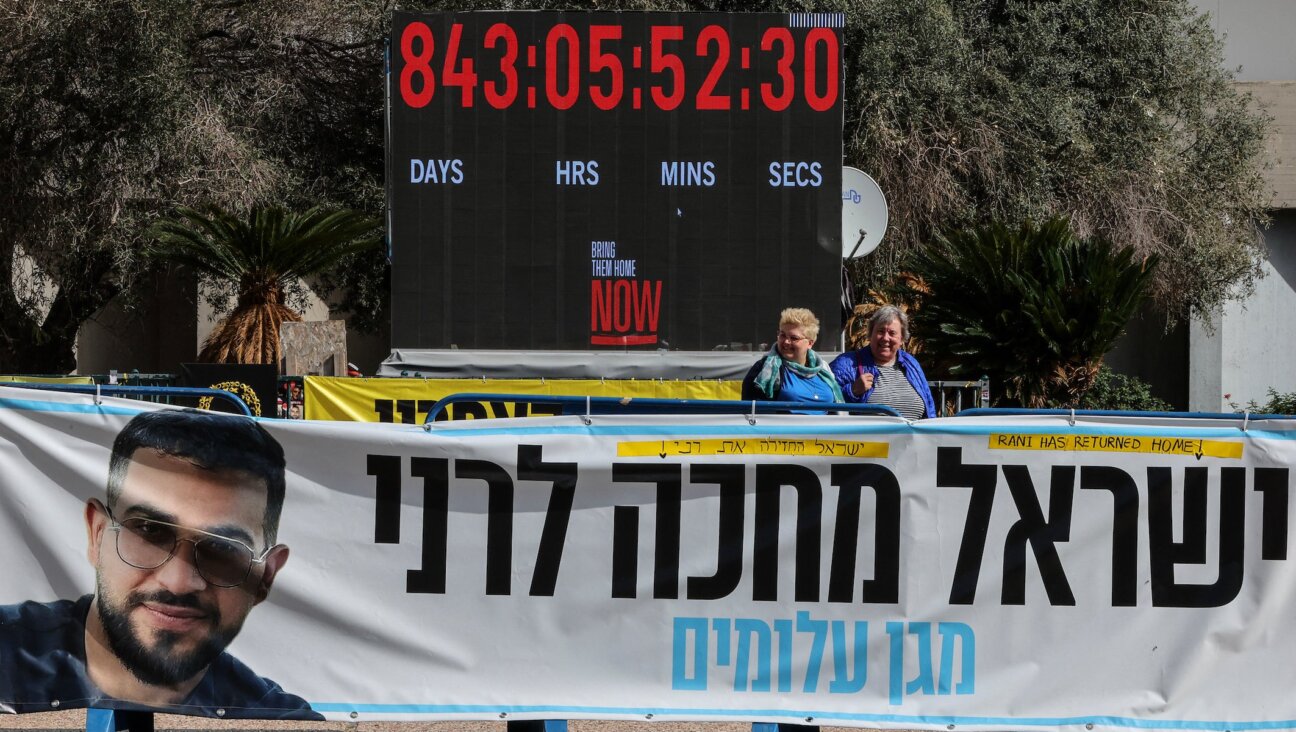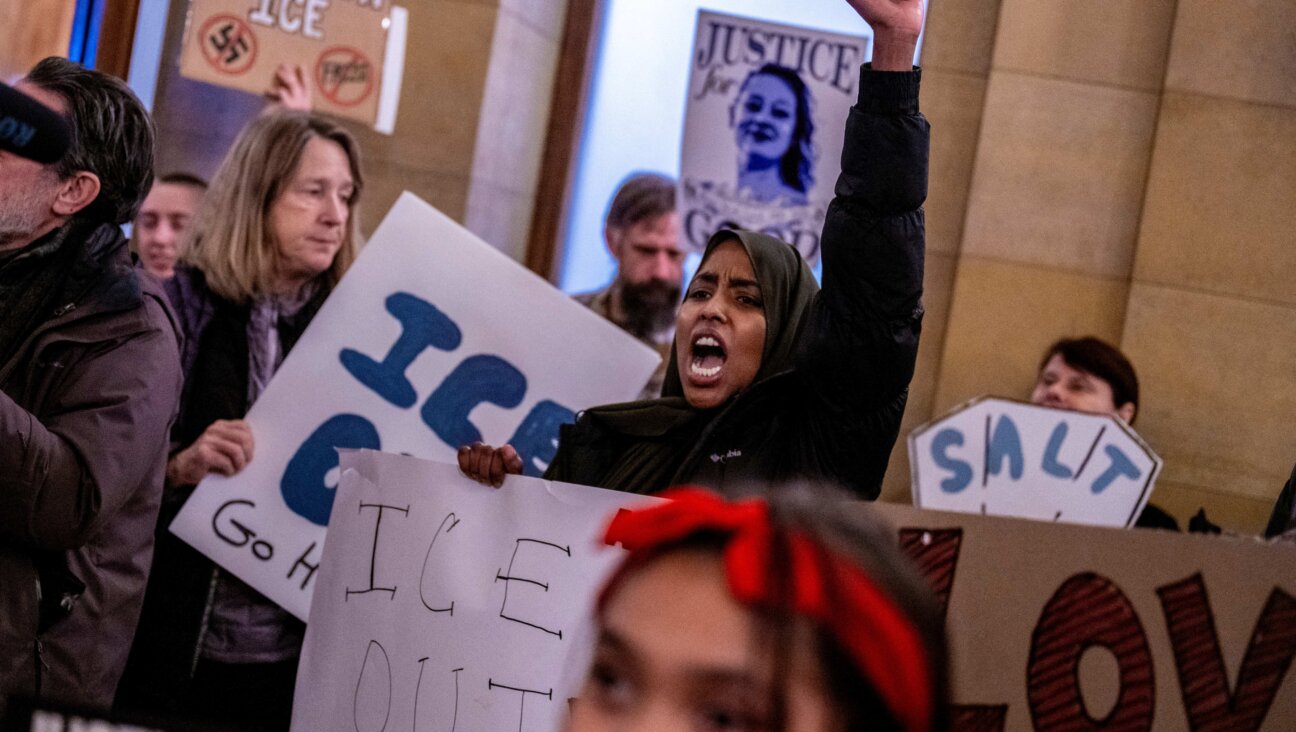Dutch Town That Once Segregated Jewish Pupils Plans Holocaust Memorial

Graphic by Angelie Zaslavsky
A Dutch municipality where a local school had segregated Jewish pupils from members of the royal family decided to erect a monument commemorating Holocaust victims.
The municipality of Baarn near Utrecht, 25 miles from Amsterdam, announced last week it would erect the monument near its central station in January 2016 at a cost of $13,000, the news website rtvutrecht.nl reported.
In June, the Nieuw Israelitsche Weekblad, a Jewish weekly, reported on the findings of a historian, Bart Wallet, whose research showed that classes which the princesses Irene and Margriet would have attended in 1952 were split and the children of Jewish descent were placed in a parallel class. Jewish parents protested the move, to little effect.
In its statement, the city made no reference to this episode, which received extensive coverage in Dutch media.
“A memorial wall will be erected and fitted with a plaque with the names of 45 Jewish victims” who were deported from Baarn or otherwise captured and murdered, Baarn Mayor Mark Röell said in a statement.
Last month, the city of Utrecht, which had been the only large Dutch city without a Holocaust memorial site, unveiled its commemorative monument for Holocaust victims near the Dutch Railway Museum.
The monument was erected there following initial objections by the museum, which had reportedly thwarted earlier attempts at commemoration on its grounds. Local Jews sought to commemorate the victims there because that locale had been the roundup point for more than 1,224 Jewish Holocaust victims in the 1940s, when the museum grounds still served as a train station. Management said the deportation were sufficiently commemorated in a permanent exhibition inside the museum.
The Dutch Israelite Religious Community, or NIK, wrote in a statement that with the erection of the monument, which cost over $200,000, Utrecht “fulfilled it duty of honor.”














